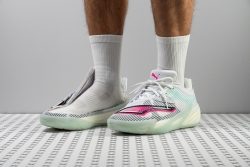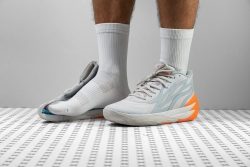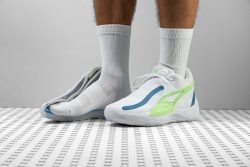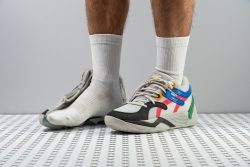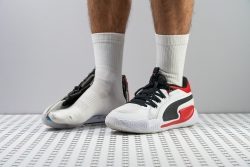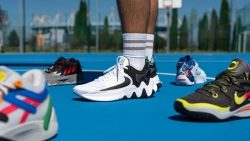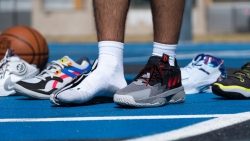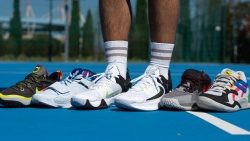5 Best PUMA Basketball Shoes in 2025
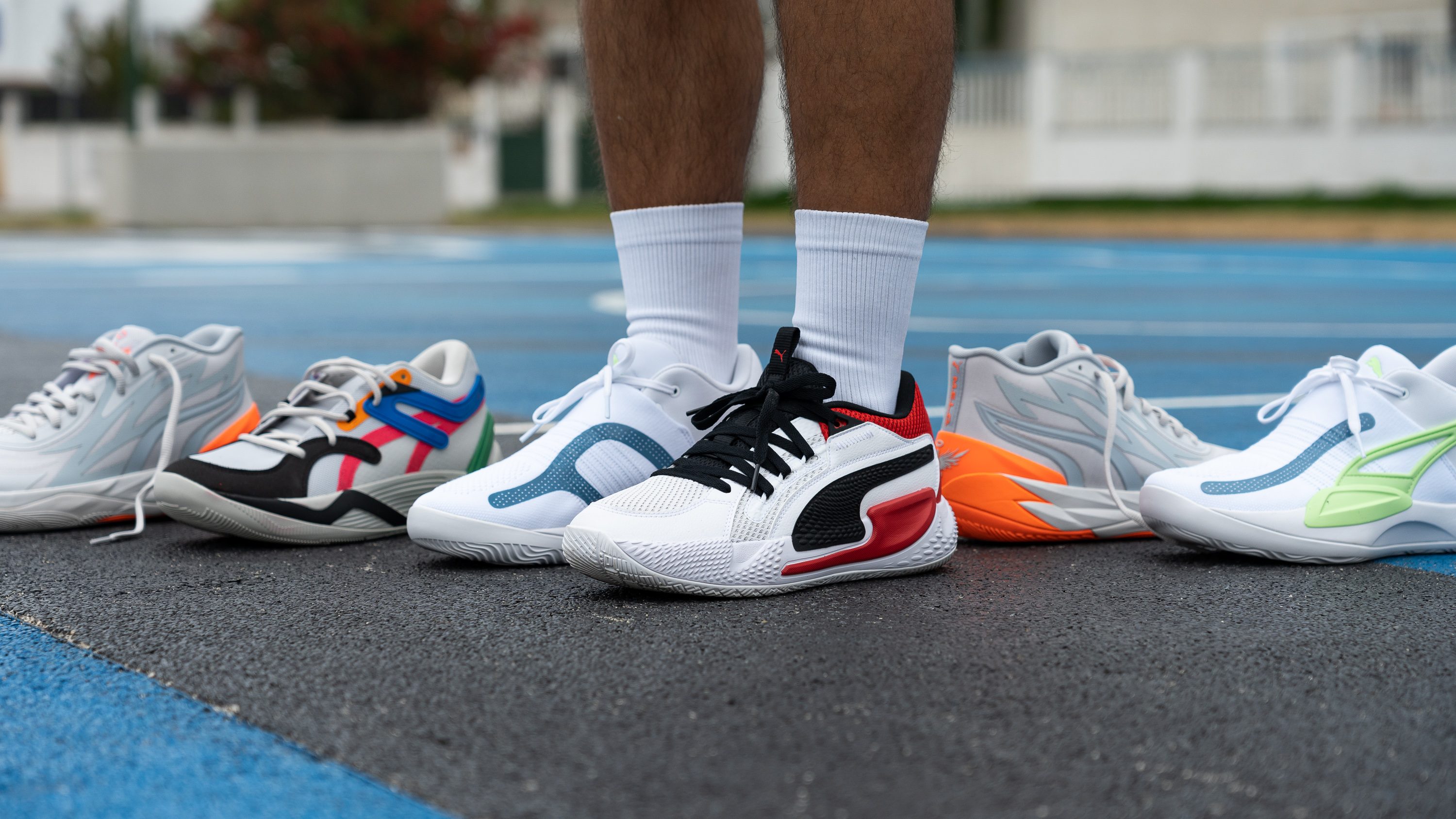
We buy shoes ourselves. We earn commissions when you buy through us, at no extra cost. Why trust us
Nike (together with its subsidiary Jordan) and Adidas have long been the most dominant players in the basketball shoe market. However, this did not stop PUMA from re-entering the game in 2018 after around twenty years of producing only lifestyle sneakers and running shoes among others.
PUMA's grand re-entry was with a rightful nod to its great basketball past. The company produced a new and aptly modernized version of the Clyde Court Disrupt, which of course was a direct pick from Clyde Frazier's arsenal.
Since then, PUMA has produced a handful of kicks, each with its own strength. However, not everyone has the time and the resources to figure out what pair is perfect for them and what is the best all things considered. So, we tested PUMA basketball shoes in actual hoops games and on the lab tests to find which is the last shoe standing. We selected our top choices and listed them here in this article.
How we test PUMA basketball shoes
Picking the best PUMA basketball shoes requires serious testing. For this reason, we take the liberty to do the dirty work while you sit back and read on. When testing for these basketball shoes, we always make sure that each PUMA shoe gets used in more than two games before a verdict or final assessment is made.
To further ensure the objectivity of our picks, we do the following:
- See to it that each product is bought using our own cash to avoid bias.
- Apart from taking the shoes to real games of basketball, and performing the typical and actual things we usually do inside the court, we also test them in our lab. We measure the 30+ parameters of the shoes and take note of all the results before we compare them to the average values. We even chop the shoes into pieces so we can take into account every element existing in them. Finally, we establish our conclusion regarding each parameter.
Best PUMA basketball shoes overall
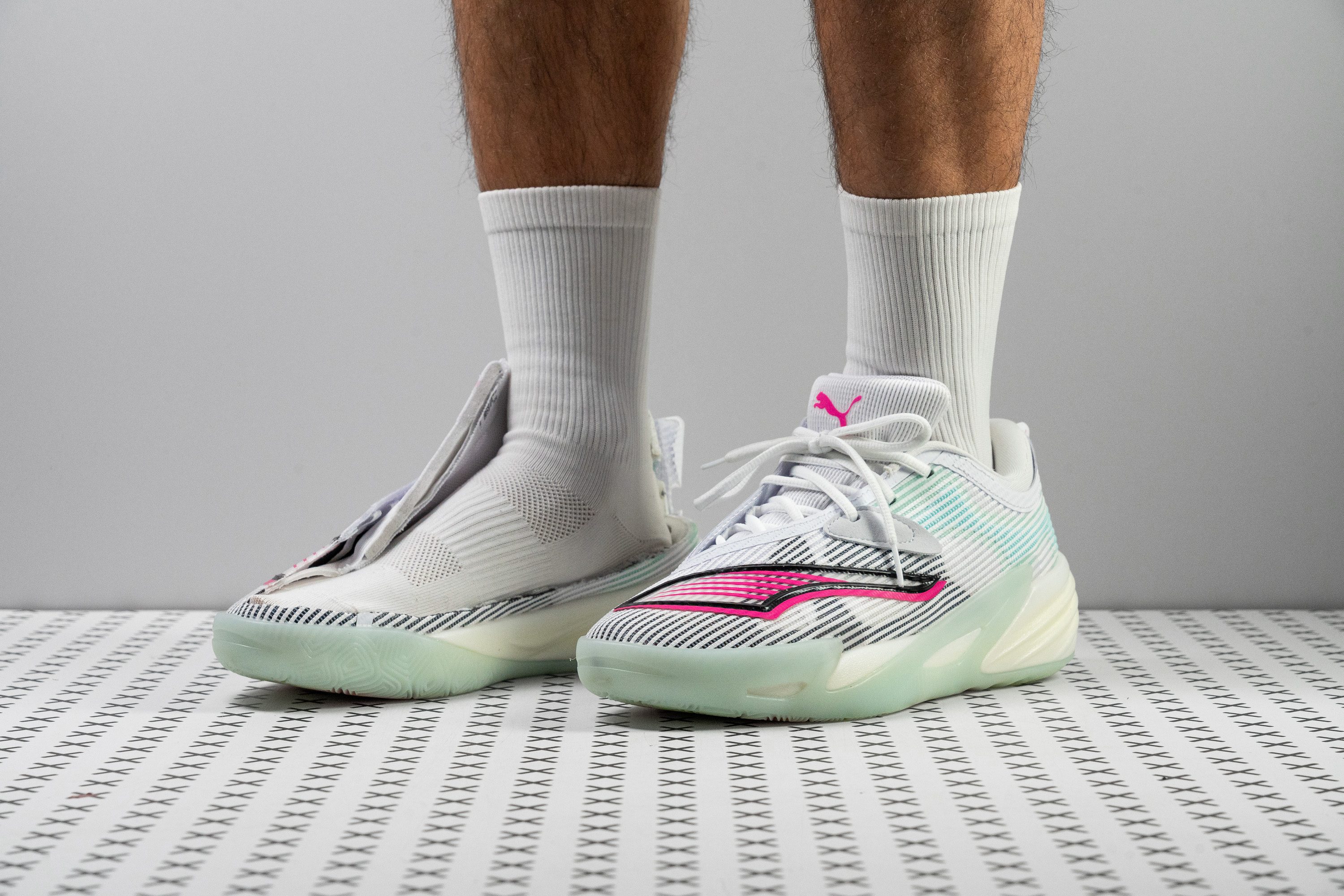













































What makes it the best?
While the PUMA All Pro Nitro 2 doesn’t break records in any particular department, its solid all-around performance in our lab tests makes it the best PUMA basketball shoe overall!
We believe ‘reliable’ is the best word to describe the All Pro Nitro 2, as the shoe offers a highly stable platform with solid ankle support, great outsole traction with an above-average friction score of 0.76, and promising durability in both the upper and the outsole! The latter, for example, is especially impressive, showing practically no damage (a dent of only 0.5 mm) in our Dremel test!
Not to mention the shoe's new upper material, which mixes decent wear resistance (3/5) with high breathability (4/5)!
And can we also give the PUMA All Pro Nitro 2 some credit for keeping its weight (13.6 oz/386g) and price ($130) moderate for more basketball players to enjoy it!
Pros
- Great shock absorption
- Excellent outsole traction
- Highly stable platform
- Exceptionally breathable
- Impressive durability
- Comfortable underfoot feel
Cons
- Not much rebound
- Toebox can feel constricting
PUMA basketball shoes with the best support
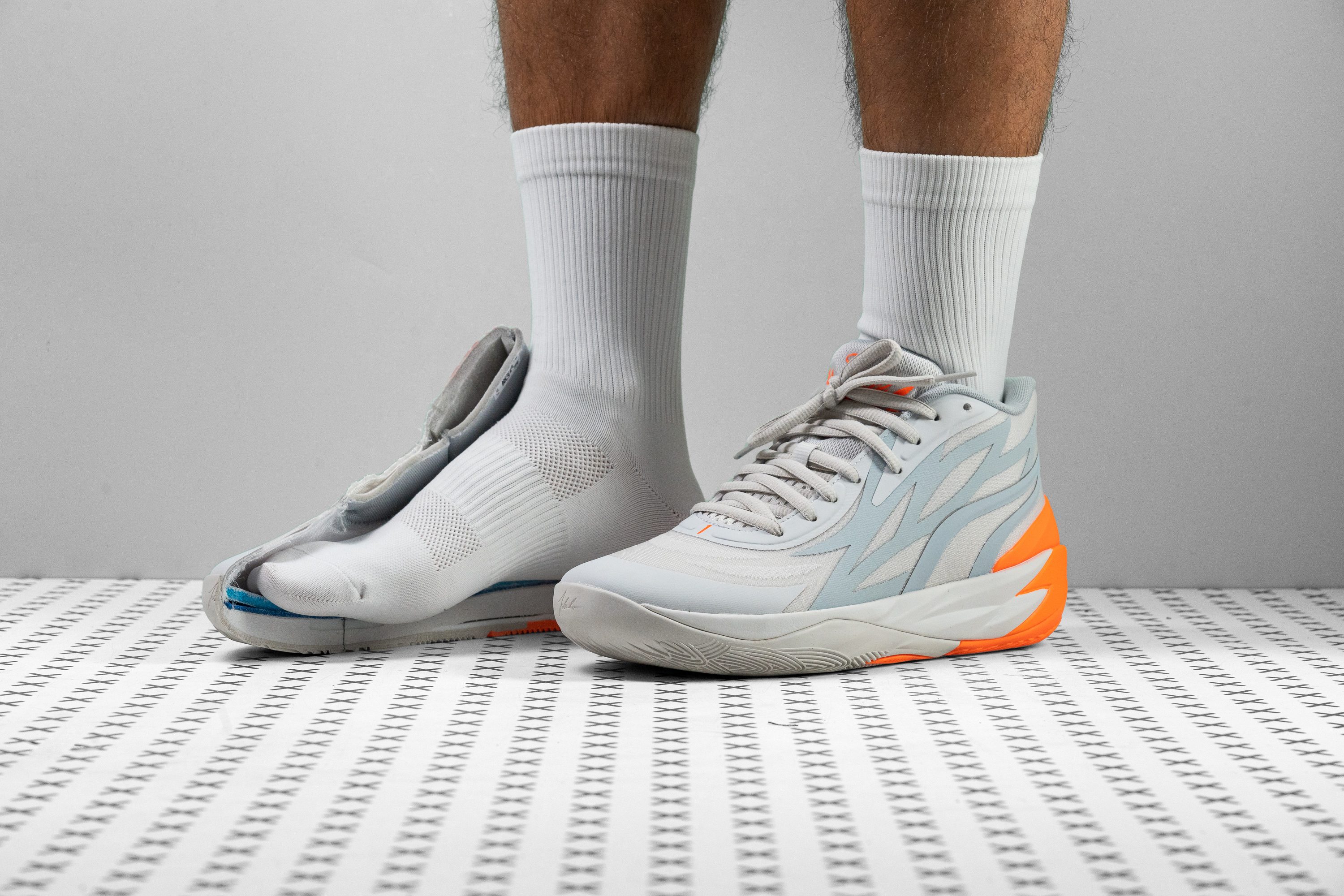










































What makes it the best?
If you want a Puma basketball shoe that’s big on support and containment, then the MB.02 is definitely for you. Hands down, this basketball shoe has got to be the most supportive kick that we’ve ever tried! Besides amazing containment, this basketball shoe also delivered a good deal of outdoor worthiness and linear flexibility.
The amazing support that this shoe gave came from a number of sources. One of which was the generously padded tongue, which we measured to be 10.5 mm thick (average is 9.2 mm). Then there was the tongue’s gusset-type design, which practically ensured that our feet remain inside the shoe even during aggressive motion.
The outsole felt hard and thick, so we were quite confident to use the Puma MB.02 outdoors. Our lab results only confirmed what we have always known. Our HC durometer gave it a hardness rating of 86.5 when the average is only 81.8. The caliper showed that the outsole is indeed thicker than usual, 5.6 mm versus the 4.0 mm average.
Even if its base was thicker, this Puma shoe was still able to get rid of any form of clunkiness because of its flexibility. After performing our standard flex test on it, we learned that it needed 17.0% less force than the typical basketball shoe to reach our standard angle.
It was just a little disappointing that the Puma MB.02 couldn’t let a good amount of air in. It only scored a meager 2 out of 5 in our breathability smoke test.
Pros
- Awesome impact protection
- Top-notch ankle support
- Superior stability
- Excellent foot containment
- Reliable traction
- Comfortable in-shoe feel
- Durable construction
Cons
- Lacks energy return
- Not breathable
- Not perfect for outdoors
PUMA basketball shoes with the best fit
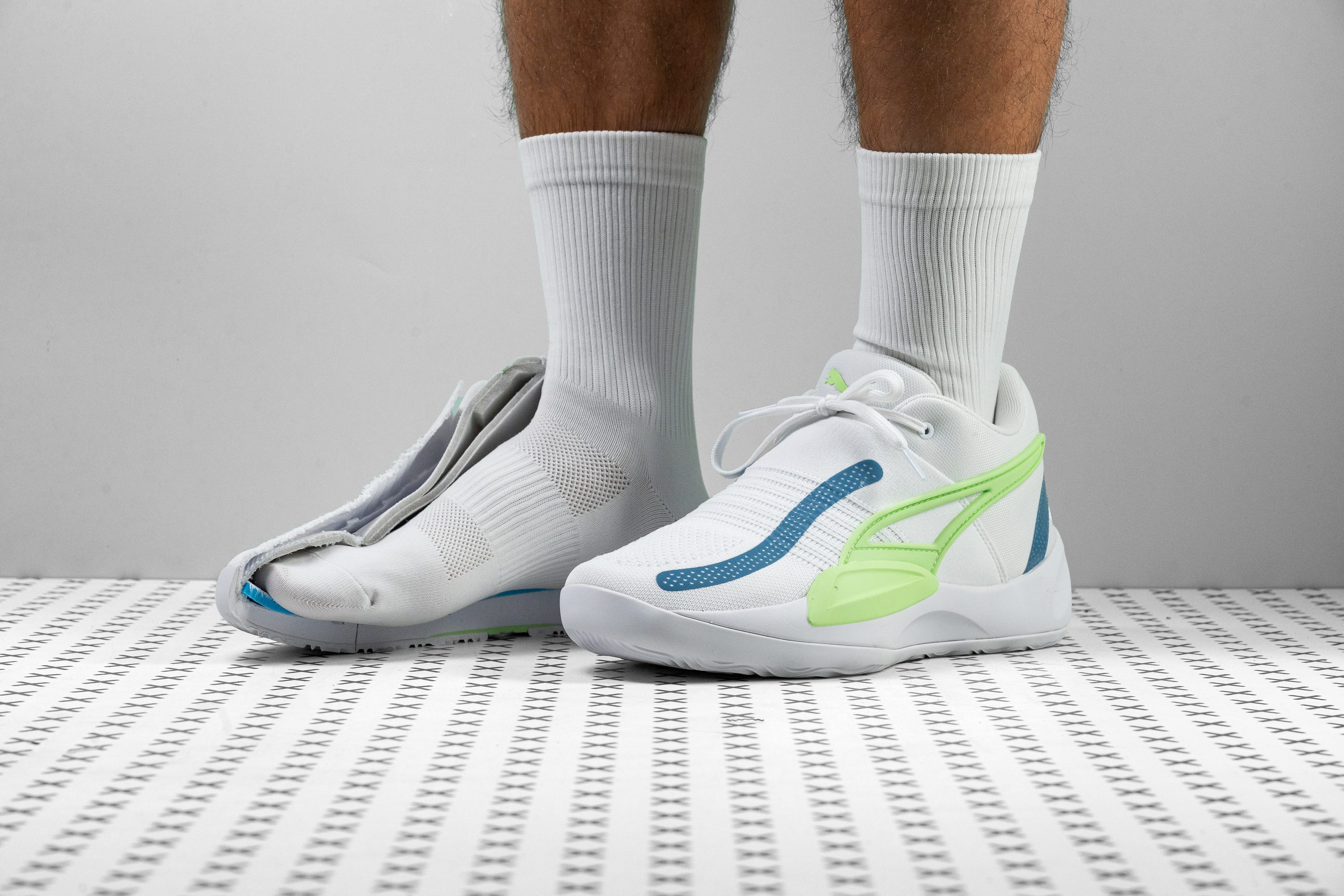






































What makes it the best?
The PUMA Rise Nitro easily rose above other PUMA basketball shoes in terms of fit because of its fully gusseted and well padded tongue. Aside from a nice fit, this shoe also boasted of a pretty stable platform and well-ventilated upper: completing a truly comfortable and confidence-inducing experience.
The thick (11.2 mm versus the 9.2 mm average) and fully gusseted tongue definitely helped with foot containment during our test games. The fit was truly A+ because of these features.
The shoe’s stability was also pretty noteworthy. Not once did we think that we would slip or that our feet would fall off the footbed. We have the Rise Nitro’s pretty wide platform to thank for this experience. At the forefoot, this shoe is 119.8 mm wide (the average is 113.9 mm). Our caliper measured the heel part to be 95.2 mm wide while the average is only 91.6 mm.
The comfort that we enjoyed while wearing the PUMA Rise Nitro was largely because of the quite airy upper. We subjected the upper material to a number of breathability assessments in the lab. We were convinced that it deserved a pretty impressive 4 out of 5.
The hardness of the outsole, we have to say, was a source of some disappointment. Our HC durometer measurements confirmed that it was way softer than average at 68.4. The average rating is a staggering 81.8.
Pros
- Great impact protection
- Good court feel
- Very comfortable step-in feel
- Effective grip (on clean courts)
- Breathable upper
- Dependable support and lockdown
- Durable materials
- Futuristic look
- Reasonable price
Cons
- Not for the outdoors
- Dust-sensitive outsole
- Heavier than average
PUMA basketball shoes with the best comfort
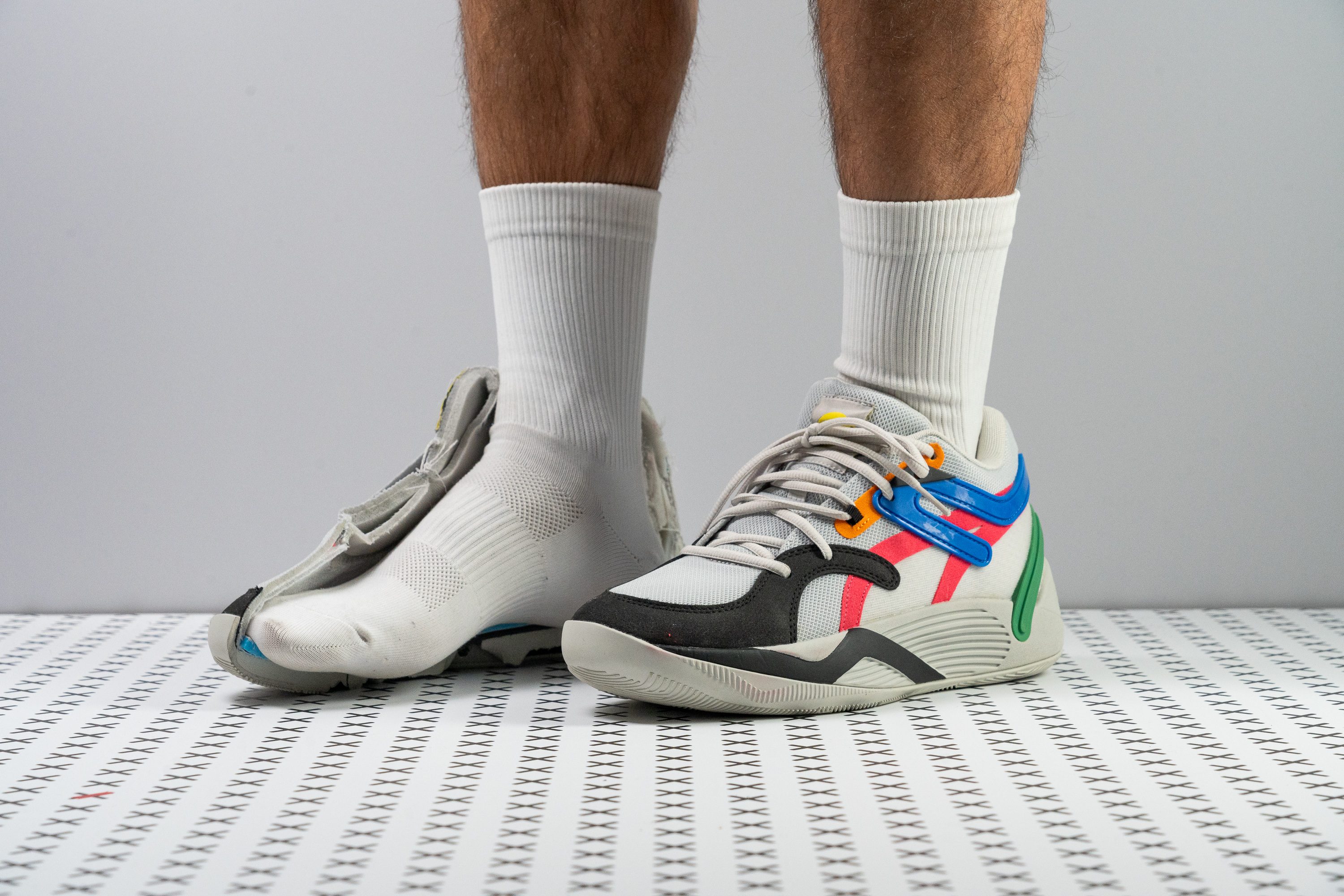



































What makes it the best?
The TRC Blaze Court, for us, has the best comfort among all shoes from Puma because it delivers a good blend of impact protection and bounce. Moving fast while wearing this shoe did not feel like such a chore. The shoe’s lightness and structural flexibility complemented the performance of the cushioning so well.
The cushioning system of the TRC Blaze Court from Puma is a real-life paradox. While both the thickness (29.0 mm vs 30.0 mm ave) and the softness (32.0 HA vs 26.6 HA) of its midsole do not indicate a lot of softness and compression, our experience while wearing it was more than OK. We felt protected from pain, and our steps were even aptly energized.
We also appreciated the lightness of this Puma basketball shoe. At 13.12 ounces or 372 grams, this shoe is indeed lighter than the 14.22 ounces or 403 grams.
When it comes to flexibility, we learned through our standard lab test that the Puma TRC Blaze Court has more give than the typical hoop shoe. Our assessments revealed that this Puma is 19.6% more pliable than average.
This shoe would have been more appealing to us had it been better ventilated. It only got a 2 out of 5 for breathability after both smoke and light couldn’t pass through the upper easily.
Pros
- Excellent grip for quick movements
- Incredible bounce and impact protection
- Amazing in-shoe comfort
- Dependable foot containment
- Smooth ride
- True-to-size fit
- Pretty light
- Slender appearance
Cons
- Cheap materials and poor durability
- Dulled by dust
- Reduced court feel
- Lacks breathability
Best budget PUMA basketball shoes
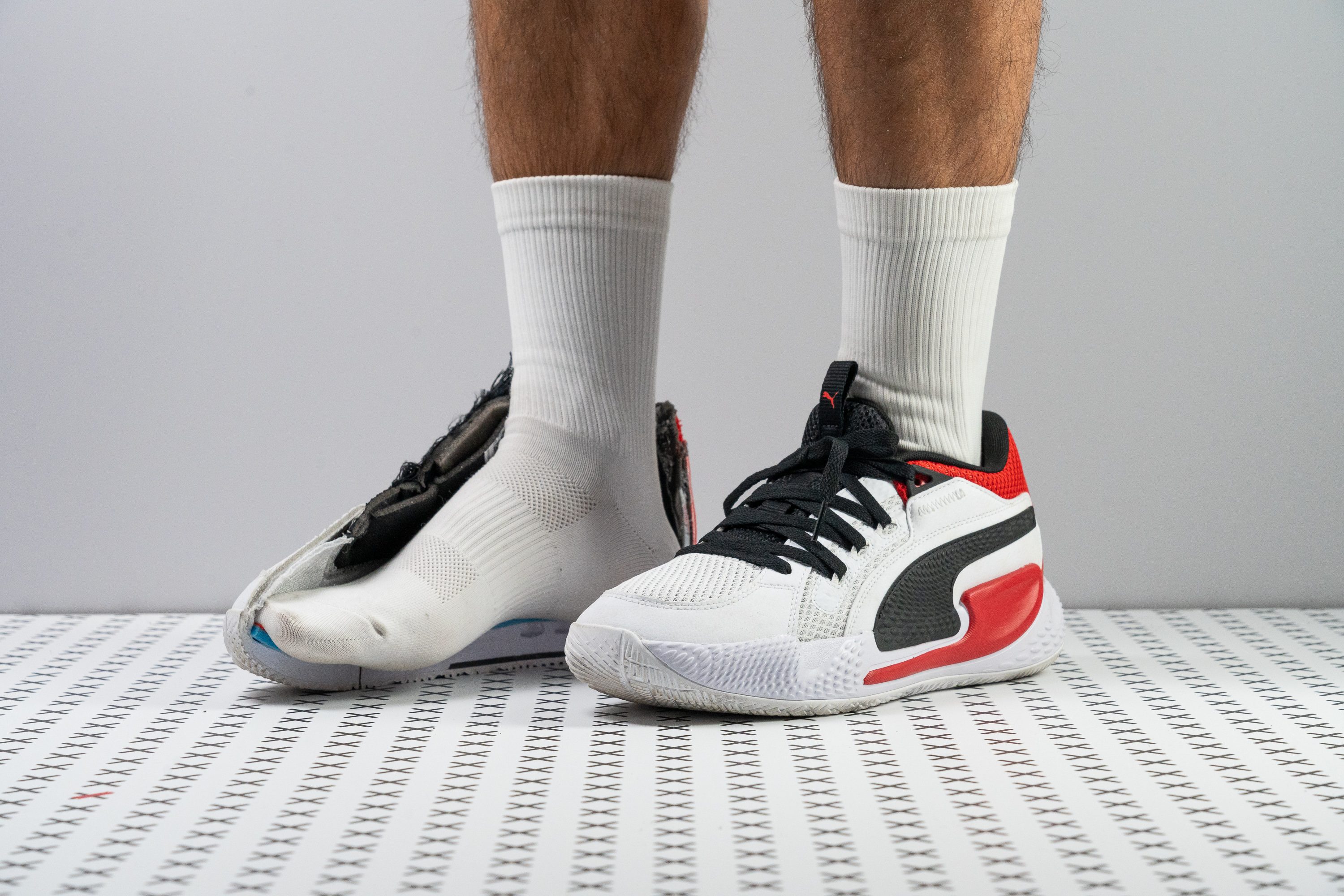


































What makes it the best?
At only $100 per pair, the Puma Court Rider is definitely cheaper than the average basketball shoes ($134). But more than just being cheap, the shoe is actually a convincing performer. First off, its midsole felt firm, so we were able to control our movements better. This shoe is also structurally flexible, allowing us to move much more naturally.
Compared to the average midsole (26.6 HA), the Court Rider’s is definitely on the firmer side (30.4 HA). Aside from affording us more control, this firmness also allowed us to accelerate with much ease.
In the lab, we measured how much force was needed to bend this shoe, and it needed 10.1% less than the typical basketball shoe. The added flexibility allowed our feet to move naturally. We were able to strike at peculiar angles.
If there is one thing that we would want to improve, it would be its weight. The Puma Court Rider weighs 15.84 ounces or 449 grams, making it heavier than the 14.22 oz (403g) average.
Pros
- Pronounced court feel
- Amazing stability and support
- Secure lockdown
- Comfy in-shoe feel
- Great value for money
- True to size and fit
- Stylish for casual wear
Cons
- Heavier than average
- Lacks breathability
- Not much impact protection

